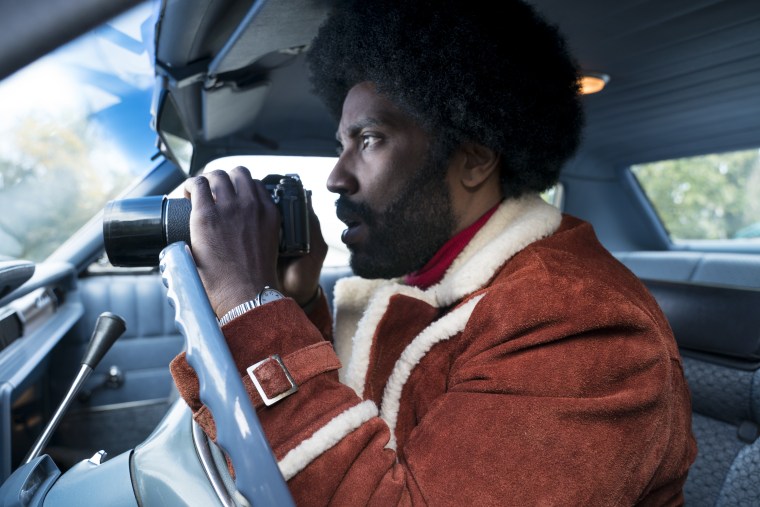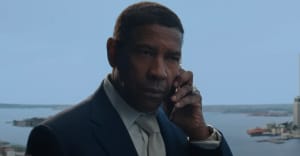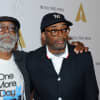 BlacKkKlansman press still
Focus Features
BlacKkKlansman press still
Focus Features
In 1991, Spike Lee was facing pressure over his then-impending Malcolm X biopic from black artists and activists like Amiri Baraka. "We will not let Malcolm X's life be trashed to make middle-class Negroes sleep easier," Baraka told The New York Times during an assembly in Harlem. Baraka believed Lee’s films like Do The Right Thing and School Daze trivialized and undermined the struggles of black Americans, a view echoed by Tupac Shakur a year later. For similar reasons, neither man believed that Lee was the director who could channel a pro-black, anti-racist moment into the uncompromising truths that would discomfit a mainstream audience.
The question of “Who are Spike Lee’s films for?” is not settled 35 years into his career. BlacKkKlansman, Lee’s latest, is based on the memoir of an African American police officer named Ron Stallworth who infiltrated the Ku Klux Klan in late-’70s Colorado Springs. It has been embraced by the mainstream film establishment in a way that Baraka perhaps feared for the far more challenging and incendiary X: reviews in at least two major publications have used the phrase “How Spike Lee Got His Groove Back,” a reference to another black-led film from 1998 that Lee had nothing to do with. Richard Roeper called it “one of the best films of 2018,” and Lee has covered Time Magazine. While X was shut out of the Oscars with two nominations, BlacKkKlansman has won the Grand Prix award at Cannes, and is a strong contender for a string of major nominations, including the Best Actor trophy for star John David Washington. (His father, Denzel Washington, controversially lost the same award for X, giving the award that sense of underlying narrative the Academy favors when doling out prizes.)
Political climate is a huge factor in BlacKkKlansman’s success: the white supremacy that serves as the antagonist of the film is directly linked to the rise of Donald Trump. From shell-shocked Hillary supporters to Republicans who just want the volume of the culture’s racism turned down, there is a major market for products and pieces of media that can be consumed like a tonic to the rise of the far-right. Pepsi took this literally with its infamous Kendall Jenner ad, while Twitter is a breeding ground for con artists looking to channel despair over decaying norms into book deals. The shift extends to the highest echelons of filmmaking as well: Spielberg’s 2017 film The Post wrapped itself in the valor of the fourth estate to predictably ecstatic reviews in the same papers. Black Panther, co-written by director Ryan Coogler in 2016, was embraced with a passion unlike any other superhero film, and was released the month after Trump demonized Africa as a collection of “shithole countries.” Then there are the personalities moulded for the ceaseless volley of cable news, individuals like Trump’s personal lawyer Michael Cohen and FBI agent Peter Strzok who have defied the president, efforts that are rewarded with GoFundMes that routinely break their fundraising goals. Robert Mueller, who is leading the investigation into allegations of collusion between Donald Trump’s campaign and Russia, has found a fan in Spike Lee, who wore a shirt reading “God Protect Robert Mueller” during a recent appearance on CNN. The bureau has pivoted from the organization behind COINTELPRO to vanguard of the resistance against Trump, and not even a man who once mused on the possibility of the F.B.I.’s involvement in the murders of Malcolm X and Martin Luther King Jr. is immune from the plot.
What’s so disappointing is that we truly need the level of provocation BlacKkKlansman promised in its marketing.
Washington’s Stallworth is such a troubled sentinel beset by outside forces in a quest for “pure justice”. He wants to be a cop more than anything, but the racism he faces from within the police department and undercover in the KKK (led by a Ned Flanders-y David Duke played by Topher Grace) tests his allegiance. Further complicating matters is romance with Patrice, president of a Colorado College’s Black Student Union, who refers to all cops, including the black ones, as “pigs.” Overall, Stallworth’s police department is portrayed as flawed, not fundamentally corrupt. By the film’s end, the cancerous elements in the police department have been lanced and clumsy racial overtures from otherwise well-meaning folk are smoothed over.
As Boots Riley pointed out in an essay earlier this week, such elements made to sympathize audiences to Stallworth and his department were fictionalized. "There was no directive to stop the rise of White Supremacist organizations," Riley writes of infiltrations such as Stallworth's. "The directive was to stop radical organizations." Riley believes that had Lee stuck more closely to the truth of Stallworth’s role in undermining black activists for three years, Washington’s character would have been “the villain of the film.” While the changes suggest Lee was aware that sticking closer to Stallworth’s actual bio could reduce his appeal, he did not address these criticisms directly when asked about them, and misrepresented Riley’s argument. “I’m never going to say all police are corrupt, that all police hate people of colour,” Lee said, adding that police are necessary despite the corruption and racial hatred he has documented in his work. The “bad apple” theory, which has long benefitted those in power and enabled their misdeeds to go unpunished, is central to the ideology of BlacKkKlansman.
What’s so disappointing is that we truly need the level of provocation BlacKkKlansman promised in its marketing. It is tantalizing to imagine Washington’s Stallworth as uncompromisingly out of sync with modern centrist views of law and order, a willing tool of white supremacy whose actions call into question his entrenched ideals of justice — who taught him what law and order means? And is that what we think it looks like? However, the raw exposed nerve of white fragility means any slight prodding can be labelled “controversial.” A friend told me that when the film’s credits rolled, a white woman seated behind exclaimed “That movie was so racist!” It was apparently not an obvious joke about the antagonist of the film, but an eruption of the tension that built inside her. In Lee’s movie, the white moderation maintaining white supremacy is flimsy. In reality, it’s structural.
BlacKkKlansman’s issues are a summary of a problem we face in the Trump era: the great burning, orange racism that floods our feeds every day blinds us to what MLK called “the great stumbling block” of black America: "not the White Citizen's Counciler or the Ku Klux Klanner, but the white moderate," and the kind of peace they really desire. It is a fact that white supremacists have systematically infiltrated law enforcement and that these same institutions don’t see it as a problem. A film hewn closer to the truth with a less optimistic view of policing would have been more difficult, but perhaps, truly great. Instead, BlacKkKlansman offers a deep tissue massage for white liberal sensibilities – occasionally painful, but they can leave the session limber in the knowledge that their racism is not the seething kind on screen.


